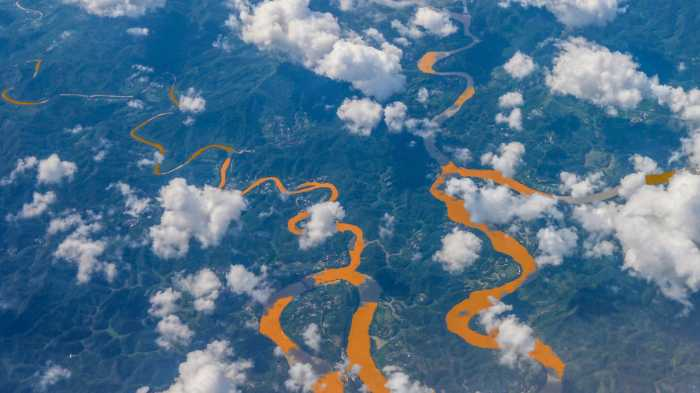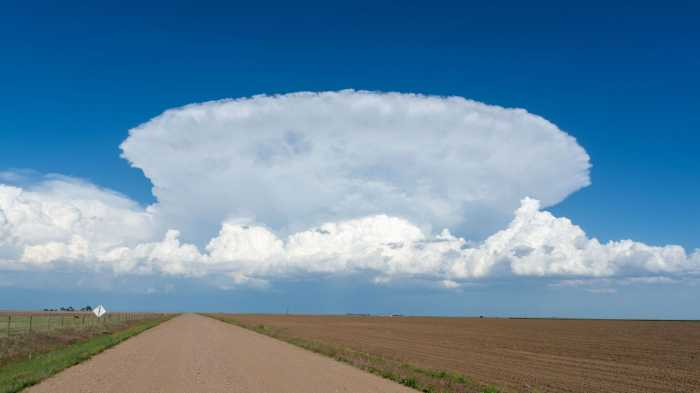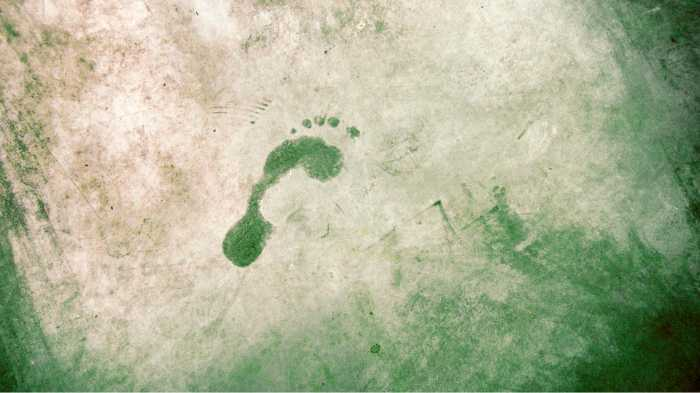
Did you know that there’s a day every year when we’ve used up more of the Earth’s natural resources than it can replenish in a year? This is a worrying trend, and it’s something that we need to address if we want to ensure sustainable growth for our planet. In this blog post, we will explore Overshoot Day and what it means for the future of our planet. We will also discuss some ways that you can help reduce your ecological footprint and do your part in preserving our environment!
- What is Earth’s overshoot day?
- How is Earth overshoot day calculated?
- What is the role of the Global Footprint Network in controlling the earth’s overshoot day?
- How can we reduce our ecological footprint?
- 1. Eat less meat and dairy
- 2. Reduce your food waste
- 3. Using public transportation or carpooling instead of driving
- 4. Recycling and composting
- 5. Reducing energy consumption
- 6. Planting trees or gardens to help offset carbon emissions
- 7. Supporting businesses that are environmentally friendly
- 8. Educate others about ecological footprints
- 9. Reduce water usage
- 10. Reduce plastic use
- Conclusion
- FAQs about Earth Overshoot Day
What is Earth’s overshoot day?

Earth Overshoot Day marks the day when humanity’s demand for ecological resources and services in a given year exceeds what Earth can regenerate in that year. In other words, it is the point at which we are using more from the planet than it can renew. The date of Earth Overshoot Day has moved up the calendar steadily since 1971 when it fell on December 21st. Whereas the Earth Overshoot Day 2021 fell on July 29th, the earliest date ever recorded.
The consequences of overshoot are dire: oceans are being fished at unsustainable levels, forests are being cleared at an alarming rate, and carbon emissions continue to rise, leading to climate change. To avoid further damage to the planet, we need to take immediate action to bring our consumption levels in line with what Earth can provide.
How is Earth overshoot day calculated?

Earth Overshoot Day is calculated by comparing the world’s biological capacity (the number of natural resources the Earth can generate that year) with humanity’s Ecological Footprint (humanity’s demand for that year). In 2020, Earth Overshoot Day fell on August 22nd.
The Global Footprint Network, which calculates the Earth Overshoot Day, says that overconsuming natural resources has a number of consequences. These include biodiversity loss, deforestation, collapsing fisheries, and reductions in the quality of air and water. They also say it contributes to climate change.
One way to think about it is that, on Earth Overshoot Day, we are using up ecological resources faster than they can be replenished. This means that we are effectively borrowing from future generations and leaving them with an ecological deficit. To put it another way: we are living beyond our means.
What is the role of the Global Footprint Network in controlling the earth’s overshoot day?

Global Footprint Network is an environmental organization that works to promote sustainable development and resource conservation. One of the ways it does this is by calculating the earth’s overshoot day.
Global Footprint Network uses data from a variety of sources to make its calculations, and the results are used to raise awareness about unsustainable consumption and encourage individuals and businesses to adopt more sustainable practices. As our population and consumption continue to grow, it’s more important than ever to keep track of our impact on the planet. Global Footprint Network’s work is essential in helping us do that.
How can we reduce our ecological footprint?

Many people are familiar with the term “ecological footprint” but don’t fully understand what it means. Simply put, your ecological footprint is the total amount of resources that you consume in your lifetime.
This includes everything from the water that you drink to the wood that is used to build your house. It also takes into account the pollution that you produce and the waste that you generate.
The average person has an ecological footprint of 2.7 global hectares (gha). This means that if everyone on Earth lived like the average person, we would need 2.7 planets to sustain us. However, we only have one planet, so it’s clear that we need to make some changes if we want to reduce our ecological footprint.
Fortunately, there are many things that we can do to reduce our ecological footprints. Here are 10 of the most effective:
1. Eat less meat and dairy
Animal agriculture is responsible for a huge amount of greenhouse gas emissions, so eating less meat and dairy can help to reduce your footprint. Plant-based food is a good alternative to increasing meat consumption.
2. Reduce your food waste
It takes a lot of resources to produce food, so wasting food is really wasteful. Try to only buy what you need and compost any food scraps.
3. Using public transportation or carpooling instead of driving
This one is pretty self-explanatory. Driving emits greenhouse gases, so using public transportation or carpooling can help to reduce your footprint. Public transportation can have other benefits as well, such as reducing traffic congestion and saving you money on gas. Moreover, carpooling is a great way to reduce your ecological footprint while also getting to know your neighbors!
4. Recycling and composting
Recycling and composting help to reduce the amount of waste that goes into landfills. In addition, recycling can save energy and resources since it takes less energy and resources to recycle materials than it does to create new products from scratch.
In addition, composting is also a great way to reduce your ecological footprint. Composting helps to fertilize the soil, which can reduce the need for chemical fertilizers.
5. Reducing energy consumption
You can reduce your ecological footprint by using energy-efficient appliances and turning off lights when not in use. In addition, you can save energy (and money) by making your home more energy-efficient. This can be done by adding insulation, sealing drafts, and installing energy-efficient windows.
6. Planting trees or gardens to help offset carbon emissions
Trees and plants help to absorb carbon dioxide, which is a greenhouse gas. By planting trees or gardens, you can help to offset your carbon dioxide emissions. In addition, trees and plants can provide other benefits, such as reducing noise pollution and providing habitat for wildlife.
7. Supporting businesses that are environmentally friendly
You can support businesses that are environmentally friendly by patronizing them. You can also encourage businesses to be more environmentally friendly by letting them know that you care about these issues. In addition, you can support environmental organizations that work to promote sustainable practices.
8. Educate others about ecological footprints
You can educate others about the importance of reducing our ecological footprints by sharing this blog post with them! You can also encourage them to make changes in their own lives to reduce their ecological footprints. In addition, you can support organizations that are working to protect the environment.
9. Reduce water usage
You can reduce your water usage by taking shorter showers, turning the faucet off when you’re not using it, and using a low-flow showerhead. In addition, you can water your plants during the cooler hours of the day to reduce evaporation.
10. Reduce plastic use
You can reduce your plastic use by using reusable shopping bags, water bottles, and straws. In addition, you can avoid products that come packaged in plastic.
Reducing our ecological footprints is important for many reasons. One reason is that it can help to reduce greenhouse gas emissions. Greenhouse gases contribute to climate change, which is a global problem. Additionally, reducing our ecological footprints can help to preserve resources and protect the environment.
Conclusion
Every day, we make choices that have an impact on the environment. By making small changes in our daily lives, we can reduce the amount of ecological footprint and help to protect the planet. This will eventually push Earth’s overshoot day back and reduce the threat to Earth’s ecological limits. What will you do to reduce your ecological footprint?
FAQs about Earth Overshoot Day

Why is Global Footprint Network important for announcing the Earth Overshoot Day?
The Global Footprint Network is an important organization that raises awareness about carbon dioxide emissions and humanity’s ecological footprint. One of the ways it does this is by calculating Earth Overshoot Day, the day when humanity’s demand for resources and services exceeds what Earth can regenerate in a year. The Global Footprint Network announces when Earth Overshoot Day marks each year.
What ecological footprints make up the date of overshoot day?
Every nation’s ecological footprint combines to make humanity’s ecological footprint that decides the date of Earth Overshoot each year, as Earth Overshoot Day 2021 fell on July 29th. Similarly, every country’s overshoot days can differ depending on the same calculations.
What is the source of the decline in our own ecological assets?
The main source of the decline in our ecological assets is the increasing world population and excessive consumption. As the population grows, so does the demand for biological resources. Moreover, the climate crisis, the use of fossil fuels, and the increasing urban infrastructure are affecting biologically productive land and overall Earth’s resources.
What is the human economy?
The human economy is the collection of all economic activity that provides goods and services to satisfy human demand. It includes everything from agriculture and manufacturing to health care and education. Over the years, humanity consumed what was available in the biosphere, and this consumption created an ecological deficit.
What are my biological resources?
Biological resources are the things that humans need to live, such as air, water, food, and shelter. We depend on these resources for our survival, so it’s important to conserve them.

Dean Emerick is a curator on sustainability issues with ESG The Report, an online resource for SMEs and Investment professionals focusing on ESG principles. Their primary goal is to help middle-market companies automate Impact Reporting with ESG Software. Leveraging the power of AI, machine learning, and AWS to transition to a sustainable business model. Serving clients in the United States, Canada, UK, Europe, and the global community. If you want to get started, don’t forget to Get the Checklist! ✅
